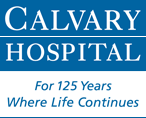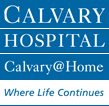Advanced Care Directives: What You Need to Know
Nobody likes to think about it, but sometime in the future, you or a dear loved one may become very sick, or injured and be unable to make your own decisions regarding your medical care. Whether from an accident, a surgical complication or severe illness, if you couldn’t speak for yourself, who would you want to speak for you?
Everyone 18 years and older should complete their Advanced Care Directives document to answer that question. While the subject may be uncomfortable to discuss – in many cultures it is even considered taboo – in our contemporary society it is imperative you do so. We urge you to please take a moment and understand why it’s important.
Did you know here in New York State, no one can direct medical care for you without your wishes expressed in writing?
While your close friends and family members know you well and have your trust to make the best decisions for you in a given medical situation, without that desire clearly presented in an Advanced CareDirectives document, they won’t be given that authority over your care.
Our New York Health Care Proxy form also known as an Advance Care Directive, lets you express your medical care wishes in advance and appoint an (agent), your proxy, to speak for you if you cannot speak for yourself.
“When a medical crisis occurs, a person is often unable to make decisions on their own,” said Debbie Feldman JD, LCSW, Administrator, Family Care Services for Calvary Hospital.
“Taking care of Advanced Care Directives, by appointing a Health Care Agent and filling out a Living Will, assures that your surrogate decision-makers have a full understanding of your wishes. Ideally, you want to do this long before you need to, thus allowing for your appointed decision-makers to enter into a dialog with you in order to respect and follow your preferences for care.”
Talking about Care
It is important that you, your loved ones and doctors have a regular discussions about Advanced Care Directives. As we age, our views and personal opinions change, along with our quality of life ideals and our hopes and expectations for our personal medical care.
By completing your Advanced Care Directives, you, your family and your medical team will know exactly what you want your care to look like, when and how. This information will remove a stressful subject that you and your family may need to confront at the worst possible time. It’s best to have this discussion when everyone is of clear thought and unencumbered by the concern of a medical condition with unknown consequences.
Your Wishes and Your Care
Research suggests as many as two-thirds of all American adults have not completed their Advanced Care Directives. Lacking a patient-authored directive can cause discrepancies between your wishes and the care you will receive at the end of your life.
You should clarify what type of treatments you would like included in your end-of-life care. With your doctor, you will be able to think through common circumstances and define your care ideals. You may choose to focus on treatments that improve your comfort or sustain you physically in a given medical situation. Or you can choose whether you’d like to stop a particular type of treatment that may cause a significant side effect.
Many studies show that focusing on symptom control does not generally shorten life. Instead, reports have shown that improving the patient experience allows a person to enjoy a sense of peace and calm. What is important to you?
Know Your Care Options
Make sure you take into consideration what special physical, emotional and psychosocial needs you want included in your care. Evaluate what support can be provided by family and friends. Then discuss your thoughts and feelings with your healthcare team or social workers.
Take time to understand your options, ask questions, and build familiarity with common terms and conditions.
Advanced Care Directives and End-of-Life Care Planning
Decisions about your care should be based on your personal values, preferences, and discussions with your loved ones. At Calvary Hospital we meet families every day who have not completed their Advanced Care Directives and wish they had. It is because of this experience, we urge you to start this conversation with your healthcare team, family and loved ones today.
Plan in Advance
To plan properly, you should:
- Talk about your health and your wishes regarding your end of life care
- Make this an ongoing conversation so that you have time and support to think through your options
- Identify what is most important to your future health care in a number of common scenarios
Prepare for Today & Plan for Tomorrow
Advanced Care Directives and end-of-life care planning are not just for the elderly. Don’t wait to complete your form – you can’t predict when an accident or injury might happen.
This subject is difficult to think about but also extremely important. We hope you will take the time to speak with your doctor and family to explore your feelings on this subject. A great place to start is assessing what your ideals are surrounding your care in a wide range of circumstances.
Consider this fact: nobody, not even your spouse, can act on your behalf without being appointed as your health care proxy. The Advanced Care Directive form will state what kind of care you want or treatments you do not want to receive. Remember, even if you discuss options with friends and family, NO ONE can legally direct your medical care without being appointed in writing.
Beginning this process is uncomfortable, but it will save the people you care about most, as well as your physician and social workers, from making decisions that may not be exactly what you want. With Advanced Care Directives in place, you can choose and remove the uncertainty from the hearts and minds of the people who love you…and yourself.
Click here to learn more about advance care planning. Who to talk to, about what, when and why.
Categories
Archives
- April 2025
- March 2025
- February 2025
- October 2024
- August 2024
- July 2024
- May 2024
- April 2024
- March 2024
- February 2024
- December 2023
- November 2023
- October 2023
- August 2023
- July 2023
- June 2023
- May 2023
- April 2023
- March 2023
- January 2023
- December 2022
- October 2022
- August 2022
- July 2022
- June 2022
- April 2022
- March 2022
- February 2022
- January 2022
- October 2021
- September 2021
- August 2021
- July 2021
- June 2021
- May 2021
- April 2021
- March 2021
- February 2021
- December 2020
- November 2020
- October 2020
- September 2020
- August 2020
- July 2020
- May 2020
- April 2020
- March 2020
- February 2020
- January 2020
- December 2019
- November 2019
- October 2019
- September 2019
- August 2019
- July 2019
- May 2019
- April 2019
- March 2019
- February 2019
- January 2019
- December 2018
- November 2018
- October 2018
- September 2018
- August 2018
- July 2018
- June 2018
- May 2018
- April 2018
- December 2017
- November 2017
- October 2017
- September 2017
- August 2017
- July 2017
- June 2017
- May 2017
- April 2017
- April 2012

